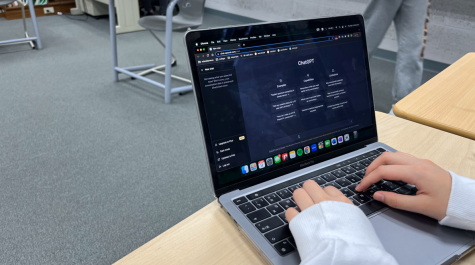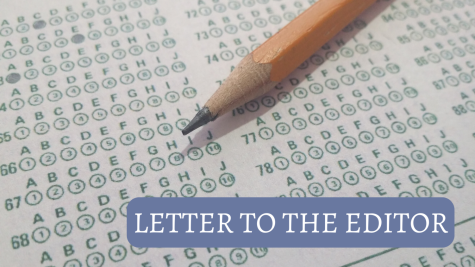A student-centered school must turn its attention to student sleep
After over five decades at this school, I write to you today to entreat our community to turn its attention to the importance of sleep. Our school has a rich history of addressing the wellness needs of its students, and it is time, once again, for us to join together to help our students. If we love these students, and I know we do, we must find creative ways as an institution and as a community to force them to prioritize sleep more. I firmly believe that if one is not part of the solution, they are part of the problem. And so we as the educators must set an example because it has become clear that they will not do it without our help.
Innovation, excellence, and student-centered focus have always been the foundation on which Taipei American School has operated and been recognized. In the March 8, 1979 minutes of the House of Representatives, Congressman Charles G. Rose of North Carolina stated, “This school, which has been operating in Taiwan for over 25 years, has served as a leader in Asian American schools. The staff and students have enjoyed an innovative curriculum….”
TAS has always included renowned experts and scholars in its program initiatives. They have been influential in guiding our school to know the best practices and how to adapt and implement them to maximize the benefits for our students. As a result of their consultations and interactions with our administration, faculty and parents, TAS is recognized as a leader in many areas of student development and success.
Architectural and education personnel from the Massachusetts Institute of Technology provided their expertise on how to create the Solomon Wong Tech Center which serves as a model for schools throughout the world.
Harvard educator Dr. Josephine Kim shared her professional and personal thoughts with our entire community last month. She is the most recent expert to discuss wellness in the Taipei American School community. Numerous international professionals have previously shared their research and recommendations on wellness with us. We hosted a highly acclaimed Wellness Convention in November 2017. TAS teachers have enhanced their knowledge about student wellness by attending workshops presented by professional experts focused on students’ health at numerous EARCOS conferences.
One paramount concern many of those specialists shared was their statistics on the sleep deprivation many of our students routinely experience. They stressed the impact on the students’ mental and physical well-being caused by insufficient sleep. Not only did the lack of sleep cause immediate problems such as lack of focus and depression, as examples, but also residual effects which are linked to future illnesses.
Taipei American School has always focused on students’ wellness and taken steps to counter bad practices.
- In the early 1970’s TAS did not have a psychologist for its nearly 3,000 students. Hope Phillips led a volunteer group of students and teachers to fundraise, especially during the annual American Chamber of Commerce Fourth of July celebration on the Wen Lin campus. The result of her committee’s determination and endeavors was the employment of the first psychologist brought from Chicago, Mr. Michael Berthold.
- TAS had a smoking lounge where high school students with parent permission were allowed to enter. It was quite a popular gathering spot until the early 1980’s when the faculty and administration decided to close it, for the school could not allow students’ health to be harmed on our campus. Since then, TAS has become a smoke-free campus.
- A controversial action TAS instituted for students’ health was mandatory drug testing which began in the 1980s and continues. It was an innovative program that interested local Taiwanese educators, as well as other international schools.
- A tragic murder in 1985 of a TAS sophomore spurred the creation of the Community Center. The TAS administration and parents/faculty were instrumental in that valuable institution’s founding. The Center’s presence was essential in 1988 when about ten high school students unsuccessfully tried to end their lives together. Those students and their parents were required to have counseling at the Center to be readmitted to TAS. The Community Center continues to play an essential role in the entire TAS community’s well-being today. That has been especially pivotal during recent events involving our students.
- The TAS student government used to raise money for various activities through the profits of its Coke machines made on campus. Students felt the more soda they consumed, the more funding they would have for dances and other popular activities. Since this century began, there are no soda machines available to students on our campus.
- During the last decade fried foods, even though they were best-sellers and popular with both students and adults, have been removed from our menus.
- The seriousness of concussions that students suffer in athletic endeavors, as well as elsewhere, has become a recent issue which all teachers and students recognize. TAS follows the best practices of independent schools in the United States by using IMPACT, developed by the University of Pittsburgh. It is considered the gold standard for establishing baseline cognitive functioning in athletes.
- This year new policies and education to be more inclusive to prevent marginalizing any of our students are focused on gender identity. New vocabulary, bathroom facilities, health, and academic curricula, as well as discussions across divisions including students, faculty, staff, as well as parents, are being led and promoted by international experts.
- Taipei American School has also created a much healthier environment for our students because of changes international experts have recommended to be best practices. In March, representatives from the internationally respected organization, Freedom from Chemical Dependency (FCD), conducted Zoom lessons for all upper school students. That group has been actually visiting the TAS campus and interacting with students in groups and individuals for years. One of the representatives from LA had visited TAS and was thrilled to recognize some students and faculty members virtually.
Now is the time to follow the advice of Professor Josephine Kim. She, like so many experts before her, stresses the necessity for teenagers to have at least eight hours of sleep each night. As teachers, we know that is essential for a child’s mental and physical well-being. We observe students who are stressed, unable to focus, unhappy and not performing at their best because they are sleep deprived. We all recognize the cause for this unhealthy existence.
Is it not time to be innovative and limit the number of classes each student can register in their schedule for next year? We know many students have various cram classes after school and on the weekends; many families employ tutors. We must also recognize many students are involved in time-consuming school-sponsored activities such as IASAS athletics, debate, drama, music, I-Gem, and robotics, as examples. Many of those activities require overseas trips and other schedules which impact their sleep patterns. As adults could we function if we had to “shadow” any of those student’s schedules? Could parents function properly in their daily lives on the limited sleep their children schedule routinely for themselves?
Many TAS graduates, especially from recent years, have shared their concerns about their sleep deprivation. They share their mental health issues from college days and today.
We have had experts advise us about the importance of having enough sleep for years; alumni candidly inform us of their concern about mental and physical well-being. Is it time for us, the professionals who care dearly for each of our students, to do what is so obviously right and necessary? What are the reasons we cannot modify our system to allow a healthy eight hours of sleep each day for those in our classes?
We need to recognize that if we are still promoting innovation, excellence, and a student-centered focus, we simply cannot continue to neglect to address the issue of students’ sleep at Taipei American School.




![A myriad of impressive trophies and awards. [ANNABELLE HSU/THE BLUE & GOLD]](https://blueandgoldonline.org/wp-content/uploads/2025/09/Awards2-600x256.jpeg)
![Students' calendars say goodbye to exam week. [ANNABELLE HSU/THE BLUE & GOLD]](https://blueandgoldonline.org/wp-content/uploads/2025/09/Exam-week-600x370.jpg)
![A collection of college flags. [PHOTO COURTESY OF AMBER HU ('27)]](https://blueandgoldonline.org/wp-content/uploads/2025/05/IMG_5029-600x289.jpeg)

![An SAT word cloud. [PHOTO COURTESY OF WORDCLOUDS]](https://blueandgoldonline.org/wp-content/uploads/2025/05/SAT-600x600.jpeg)